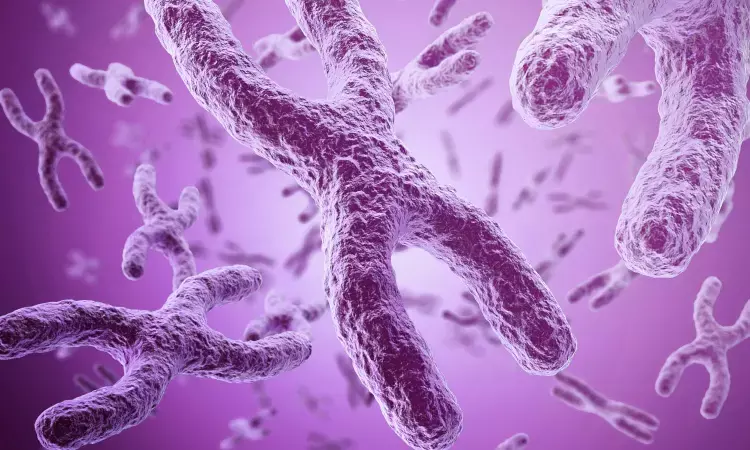- Home
- Medical news & Guidelines
- Anesthesiology
- Cardiology and CTVS
- Critical Care
- Dentistry
- Dermatology
- Diabetes and Endocrinology
- ENT
- Gastroenterology
- Medicine
- Nephrology
- Neurology
- Obstretics-Gynaecology
- Oncology
- Ophthalmology
- Orthopaedics
- Pediatrics-Neonatology
- Psychiatry
- Pulmonology
- Radiology
- Surgery
- Urology
- Laboratory Medicine
- Diet
- Nursing
- Paramedical
- Physiotherapy
- Health news
- Fact Check
- Bone Health Fact Check
- Brain Health Fact Check
- Cancer Related Fact Check
- Child Care Fact Check
- Dental and oral health fact check
- Diabetes and metabolic health fact check
- Diet and Nutrition Fact Check
- Eye and ENT Care Fact Check
- Fitness fact check
- Gut health fact check
- Heart health fact check
- Kidney health fact check
- Medical education fact check
- Men's health fact check
- Respiratory fact check
- Skin and hair care fact check
- Vaccine and Immunization fact check
- Women's health fact check
- AYUSH
- State News
- Andaman and Nicobar Islands
- Andhra Pradesh
- Arunachal Pradesh
- Assam
- Bihar
- Chandigarh
- Chattisgarh
- Dadra and Nagar Haveli
- Daman and Diu
- Delhi
- Goa
- Gujarat
- Haryana
- Himachal Pradesh
- Jammu & Kashmir
- Jharkhand
- Karnataka
- Kerala
- Ladakh
- Lakshadweep
- Madhya Pradesh
- Maharashtra
- Manipur
- Meghalaya
- Mizoram
- Nagaland
- Odisha
- Puducherry
- Punjab
- Rajasthan
- Sikkim
- Tamil Nadu
- Telangana
- Tripura
- Uttar Pradesh
- Uttrakhand
- West Bengal
- Medical Education
- Industry
Higher dose of Gene therapy promising for Crigler-Najjar syndrome

A study has highlighted the safety of gene-therapy vector GNT0003 in managing Crigler-Najjar syndrome, clarifying they have reported no serious adverse events in patients treated with it. They mentioned that Those receiving higher doses had decreased bilirubin levels and were not receiving phototherapy for at least 78 weeks after vector administration.
This study, “Gene Therapy in Patients with the Crigler–Najjar Syndrome”, by Dr Lorenzo D’Antiga, M.D. and colleagues is published in the New England Journal of Medicine.
Highlighting study background, researchers said due to the absence of enzyme uridine diphosphoglucuronate glucuronosyltransferase 1A1 (UGT1A1) in Crigler–Najjar syndrome patients, there occurs severe unconjugated hyperbilirubinemia causing irreversible neurologic injury and death. Prolonged, daily phototherapy controls jaundice partially, but liver transplantation remains the only definitive cure.
In the present study, researchers reported the safety and efficacy of a single intravenous infusion of an adeno-associated virus serotype eight vector encoding UGT1A1 in patients being treated with phototherapy. The efficacy researchers defined a serum bilirubin level of 300 μmol per litre or lower measured at 17 weeks, one week after phototherapy discontinuation.
Five patients received a single infusion of the gene construct, GNT0003.
The summary of this study includes:
- Two patients received 2×1012 vector genomes (vg) per kilogram of body weight.
- Three patients received 5×1012 vg per kilogram.
- The primary endpoints were measures of safety and efficacy.
- They reported common adverse events such as headaches and altered levels of liver enzymes, there was no evidence of serious adverse events.
- In four patients, Alanine aminotransferase increased to levels above the upper limit of the normal range, a finding potentially related to an immune response against the infused vector. A course of glucocorticoids treated these patients.
- By week 16, patients receiving a lower dose of GNT0003 had serum bilirubin levels exceeding 300 μmol per litre.
- Those receiving the higher dose reported having bilirubin levels below 300 μmol per litre in the absence of phototherapy at the end of follow-up.
They said we have not reported any serious adverse events in Crigler–Najjar syndrome patients during their treatment journey with gene-therapy vector GNT0003.
The noted patients receiving higher doses of therapy had a decrease in bilirubin levels.
Genethon funded the study.
Further reading:
BDS, MDS in Periodontics and Implantology
Dr. Aditi Yadav is a BDS, MDS in Periodontics and Implantology. She has a clinical experience of 5 years as a laser dental surgeon. She also has a Diploma in clinical research and pharmacovigilance and is a Certified data scientist. She is currently working as a content developer in e-health services. Dr. Yadav has a keen interest in Medical Journalism and is actively involved in Medical Research writing.
Dr Kamal Kant Kohli-MBBS, DTCD- a chest specialist with more than 30 years of practice and a flair for writing clinical articles, Dr Kamal Kant Kohli joined Medical Dialogues as a Chief Editor of Medical News. Besides writing articles, as an editor, he proofreads and verifies all the medical content published on Medical Dialogues including those coming from journals, studies,medical conferences,guidelines etc. Email: drkohli@medicaldialogues.in. Contact no. 011-43720751


